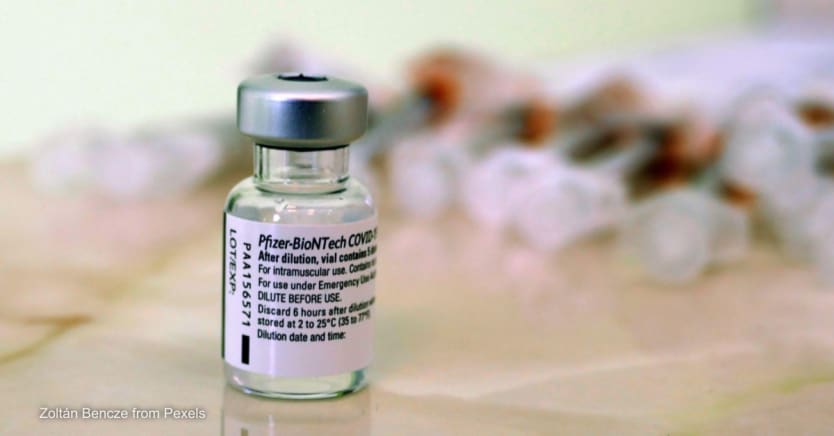
Widespread COVID-19 vaccine inequity has plagued the pandemic, with still only about 7% of the African continent vaccinated. Pharmaceutical companies have been blamed for their reluctance to share the technical know-how on how to produce their vaccines — with hopes that the expanded production of vaccines could make them more accessible.
In July, Pfizer and BioNTech signed an agreement with South Africa’s The Biovac Institute to manufacture their COVID-19 vaccine. But the deal is for the “fill and finish” process, which is only the final stage, and involves putting the vaccine’s ingredients — received from facilities in Europe — into vials and shipping the doses.
Sign up for Devex CheckUp
The must-read weekly newsletter for exclusive global health news and insider insights.
Critics say this falls short of a technology transfer, and these deals do little to increase vaccine security in low- and middle-income countries.
Patrick van der Loo, regional president for Africa and the Middle East at Pfizer, during an Africa Centres for Disease Control and Prevention stakeholder meeting on vaccine manufacturing on Monday, outlined what he said are the challenges the company faces in finding local manufacturing partners to transfer its vaccine technical know-how.
Consistent electricity, water supplies. He said that while South Africa is “quite advanced when it comes to the tech transfer itself,” the national electric provider has engaged in load shedding — a form of energy rationing, and the company has had challenges securing enough water, which complicates the manufacturing process.
“Last year, in the crisis, water was rationed, which made it very difficult both practically, but especially also ethically, to obtain and use large quantities of water for trial runs through the equipment as part of our startup tech transfer phase,” he said.
Retaining employees. Vaccine manufacturing requires a significant amount of skills training compared to other pharmaceutical manufacturing. “Very often what we see is that newly upskilled employees seek opportunities elsewhere very often outside of the [African] continent,” he said.
High volume. Given the high fixed costs due to the new equipment, there is a need for economies of scale. Normally when localizing the manufacturing of vaccines the volume is limited, often to local tenders. “I did some checking: every localization we've completed in the vaccine space results in higher cost of goods than making at the global site and exporting,” he said. “The higher volumes and insistent, long-term contracting is critical to make this work.”
He said that manufacturers tend to work with multiple multinational companies consecutively in order to create that volume — meaning there is competition for resources and time slots, “which can potentially put constraints on both parties and extend some of these timelines,” he said.
Strong regulatory track record. “When you do your due diligence process for selecting partners … one key requirement is the regulatory history of inspections by national organizations, which not always meets up to spec,” he said.
Regulatory bodies. When Pfizer works in the European Union or the United States, there are central laboratories that can be used for product testing, but in some regions that doesn’t exist, making the process more fragmented. “Approval timelines on the African continent tend to be typically longer, inconsistent between different countries,” he said.
There is also a need for high-performing national regulatory authorities that have the capacity to regulate vaccine manufacturing effectively, which are “critical, critical, critical for long term local vaccine manufacturing,” he said.
The Africa Medicines Agency, which is expected to create greater continental regulatory harmony, was recently ratified and is in the process of becoming operational. “I think African vaccine manufacturing could be enhanced, resulting in expanding the potential market as well, through [the African Medicines Agency’s] efforts,” he said.
Cold chain capacity. For its COVID-19 vaccine, Pfizer needs dry ice, which is not in abundant supply. In the case of its agreement with The Biovac Institute, Pfizer chose to make its own dry ice, to ensure it would have the right quantity and specifications.
Time-consuming. Van der Loo said the process of transferring technology for vaccines can be time-consuming. In 2015, Pfizer announced a deal with The Biovac Institute to produce the company’s pneumococcal vaccine in South Africa. This tech transfer took up to five years, he said.

Search for articles
Most Read
- 1
- 2
- 3
- 4
- 5








